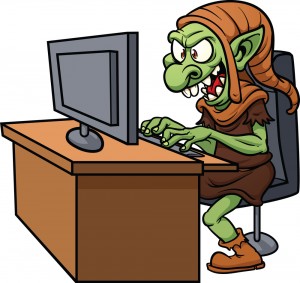Apple Inc. (AAPL) and Google (GOOG) are today heading a group of 15 companies which have formed a rather unlikely alliance to call on the United States Supreme Court for a strong shift in litigation rules. The highly litigious companies, which frequently level charges of patent infringement against each other on a scale most “patent trolls” cannot match, want the Supreme Court justices to smooth the way for companies to more readily recover legal expenses from patent holders whose claims fail to be legally upheld against a tech company.
This measure would have an enhanced punitive effect against non-practicing entities (NPEs), or “patent trolls” among those less charitable about their motives and methods. Currently, many failed suits leave the targeted company burdened with the legal costs of their defense, which can run into the millions of dollars. Apple and Google hope to create a stiffer downside to frivolous legal actions by making losers far more likely to foot winners’ legal bills than is currently the case.
 According to Bloomberg Technology, Apple and Google have been sued close to 200 times apiece in the past half-decade. The trend clearly continues today with such legal actions as the Wisconsin Alumni Research Foundation lawsuit against Apple’s use of the A7 processor and other notable early 2014 cases.
According to Bloomberg Technology, Apple and Google have been sued close to 200 times apiece in the past half-decade. The trend clearly continues today with such legal actions as the Wisconsin Alumni Research Foundation lawsuit against Apple’s use of the A7 processor and other notable early 2014 cases.
A Government Accountability Office (GAO) report cites three principle factors as being at the root of the early 21st century’s rapid multiplication of patent-related lawsuits and rise of companies whose sole function is to find technology firms to sue. The three main causes, according to the GAO, are the granting of vague patents that are too easy to adapt to the objective of suing another entity, the massive size of damage awards, and the growing awareness that patents are a highly valuable asset (not least because of the potential legal leverage they give over only slightly related products).
Seen in this light, the proposed changes by Apple Inc. (AAPL) and its allies are a counterbalancing factor meant to make patent lawsuits less of a juicy business proposition, and instead a tool used sparingly to defend actual intellectual property violations. A report from the President’s Council of Economic Advisers seems to indicate that the depictions of runaway “patent trolling” are not overblown. This document indicates that many suits are directed at several thousand companies simultaneously, and that 100,000 lawsuits are threatened annually by firms specializing in patent infringement claims.
At the core of the proposed change is a call for the Supreme Court to declare that a trial judge’s awards of legal expenses to defendants takes precedence over Federal Circuit Court of Appeals decisions on the matter. Currently, many cases end with the trial judge assessing legal fees against the filer of a frivolous patent lawsuit, followed by a reversal of the decision by the Federal Circuit. Should Apple Inc. and the other firms win over the Supreme Court to their point of view, this could potentially mark a sea change in the handling of patent cases and a strong check on the future operations of “patent trolls.”
For more Apple news follow PFhub on FaceBook, Twitter or bookmark this page.



